Films
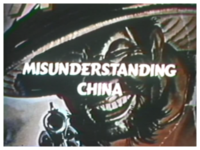
Misunderstanding China — CBS News (1972)
American perceptions and misperceptions historically influenced and distorted America’s understanding and expectations of China. These ideas and images were both reflected and reinforced in our popular culture and media, and in the ambitions of American missionaries, merchants and politicians — attitudes and assumptions that made China a subject of controversy and heated debate and affected our policy decisions, foreign and domestic. See Review Watch Now
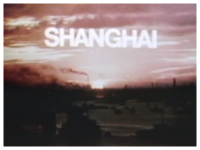
Shanghai — CBS News (1974)
A new opening in the US-China relationship made it possible for the first time in a quarter-century to film and report in-depth from inside China. In legend and in fact, Shanghai was central to the foreign experience in China and in the history of China’s communist revolution, including the Cultural Revolution of the 1960s-70s. This was filmed over a 10-week period in the spring and summer of 1973. See Review
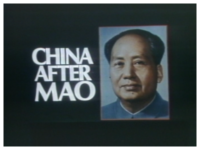
After Mao — CBS News (1976)
An obituary of Mao Zedong, the Chinese leader whose revolution was one of the pivotal events of the 20th century, broadcast on the night of his death.
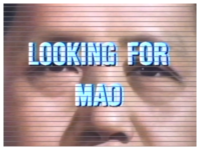
Looking for Mao — PBS Frontline (1983)
The 1980s seemed a decade of possibility and new beginnings in China, a time to confront the toll taken by Mao’s so-called Cultural Revolution (1966-1976) – a decade of political combat and violence during which at least a million had died and the lives of millions more had been shattered. Six years after Mao’s death, Chinese were willing to talk about what had happened during those catastrophic years and their hopes for the future. See Review Watch Now
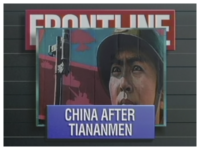
China After Tiananmen — PBS Frontline (1992)
The possibility of reform and more open political discourse in the China of the 1980s was crushed on June 4, 1989 with the government’s violent crackdown on dissent and demonstrations in Beijing’s Tiananmen Square. This was the first opportunity for an in-depth report for American television following those dramatic and tragic events, covering the tensions between the communist party’s political orthodoxy and the aspirations of a younger generation for economic independence, self-expression and a better life. See Review Watch Now
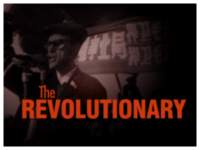
The Revolutionary — Independent Documentary Feature (2012)
The story of an American in Mao’s China who joined the Chinese Communist Party and assumed an unprecedented role for a foreigner in Chinese politics, achieving prominence in the Cultural Revolution of the 1960’s, until he crossed paths with Mao’s wife and ended up in Beijing’s Prison #1 for ten years. A revealing and cautionary tale of the American experience in China. See Review
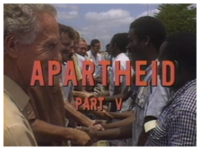
Apartheid — PBS Frontline (1988)
For eight days in July, 1987, dissident white Afrikaners met with black leaders of the outlawed African National Congress (ANC), South Africa’s black liberation movement, at a secret meeting held in Dakar, Senegal. This is an account of those meetings, and their travels to nearby Ghana and Burkina Faso in a search for common ground and a way out of Apartheid, the separation of races that had become the basis for white rule. It was an unprecedented and candid confrontation in the struggle for South Africa’s future. See Review Watch Now
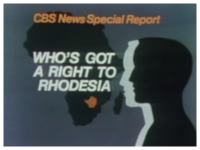
Who’s Got a Right to Rhodesia — CBS News (1977)
Rhodesia was one of the last outposts of white colonial rule in southern Africa, where a quarter-million white settlers refused to cede power to the black majority of more than six-million — despite international sanctions and a growing civil war. Rhodesia’s government showed us its side of the story. Black Rhodesians risked arrest to show us their side. The bitter conflict led, three years later, to the independent state of Zimbabwe. See Review Watch Now
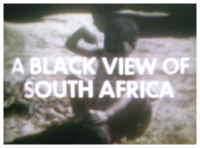
A Black View of South Africa — CBS News (1970)
At the time, CBS News was not allowed to report from inside South Africa, a country ruled by apartheid, a separation of the races whose laws, and their ruthless enforcement, assured the rule of a white minority. The film for this report was taken illegally by black South Africans and smuggled out of the country at great personal risk. See Review
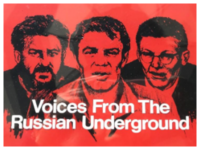
Voices from the Russian Underground — CBS News (1970)
Russian dissidents dared to speak out, on camera, about political suppression and human rights abuses in the Soviet Union. CBS News Correspondent Bill Cole managed to get the film out of the country and despite Soviet protests, the interviews were broadcast as part of a one-hour special report. See Review
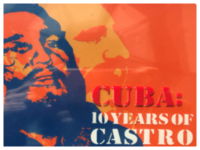
Cuba: 10 Years of Castro — CBS News (1968)
On the eve of the 10th anniversary of Fidel Castro’s coming to power, CBS News was allowed inside Cuba, the first chance to see for ourselves the state of his revolution — a communist Cuba on a tropical island just ninety miles from Florida. See Review
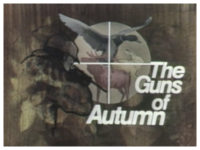
The Guns of Autumn — CBS News (1975)
Myth vs. reality. This 90-minute CBS News Report on modern hunting practices in America produced a firestorm of reaction, pro and con — thousands of letters, postcards and commentary. Much of the criticism was organized by the hunting establishment and the NRA even before the program was broadcast, including threats to boycott potential sponsors. Yet, every example of hunting shown in the film was routinely covered, recommended and publicized in the hunting press and literature, and by state game agencies. See Review Watch Now
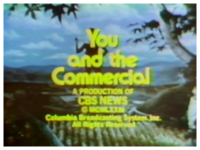
You and the Commercial — CBS News (1973)
Truth in Advertising had become an issue that was investigated in this documentary, probing the claims and techniques of the advertising industry which pays most of the network’s bills — an unprecedented report for a major TV network to undertake, and broadcast. It was aired without commercials. See Review Watch Now
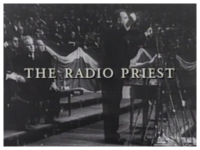
The Radio Priest — PBS The American Experience (1988)
The Great Depression of the 1930’s was a moment in the American experience of desperation, of fear and national confusion, and an urgent search for answers — a time for visionaries, and for home-grown demagogues like the Father Charles Coughlin, whose use of radio brought him into millions of American homes and spawned an unlikely political movement. Few voices in that troubled time would sound so promising to so many Americans — or so threatening. See Review Watch Now
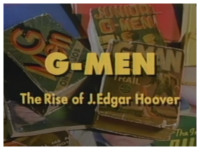
G-Men – The Rise of J. Edgar Hoover — PBS The American Experience (1991)
To understand the rise to power of J. Edgar Hoover and the FBI is to understand the America of the years following the end of World War I: during America’s first “Red Scare”, the years of prohibition and the economic distress of the Great Depression, an era of crime in which gangsters found opportunity and captured the public’s imagination. The stage was set for Hoover, the G-Man of myth and political controversy for a half-century. See Review
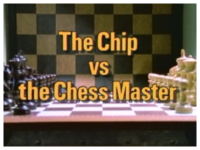
The Chip vs. the Chess Master — PBS Nova (1991)
At the beginning of the computer age, the chess board became a laboratory for testing the limits of the machine. By 1991, it was the machine that was testing the limits of man. The machine had a name: Deep Thought. Across the board was Gary Kasparov, the human champion, maybe the best chess player who’s ever lived, face-to-face in an arena in which man had been unchallenged, until now. See Review Watch Now
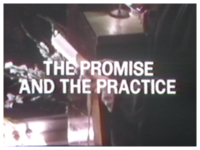
Health in America: The Promise and the Practice, Part 1 — CBS News (1970)
A shortage of physicians and nurses, geographic and racial inequality, and the lack of a national commitment to provide solutions exposed the myth that Americans were getting the best medical care in the world. At a time when computers and laser beams and organ transplants provided medical care at its best, an estimated 80-million Americans found it difficult and sometimes impossible to get treated for a sore throat. See Review
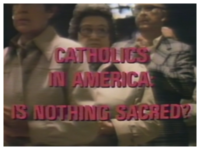
Catholics in America: Is Nothing Sacred? — PBS Frontline (1985)
American Catholics confronted the Vatican and each other on issues of faith, the supreme authority of the Pope in a democratic society, and on the place of the traditional church in the modern world. The unity of the church was being challenged by issues of abortion, contraception, homosexuality, the role of women, on support for indigenous political movements abroad, and on nuclear weapons policy. The archdiocese of Milwaukee and the Vatican opened their doors to us.
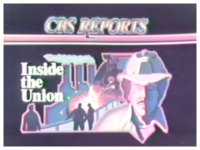
Inside the Union — CBS News (1979)
Steelworkers at Inland Steel in East Chicago, Indiana, members of the biggest local in one of the most powerful unions in America, spoke their minds on issues that go back to the beginnings of the labor movement itself — their struggle with management over safety and working conditions, and their call for more democratic procedures within the international union that governs them, a demand to be heard. See Review Watch Now
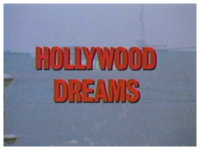
Hollywood Dreams — PBS Frontline (1986)
An inside look at the reality behind the Hollywood dream machine. As often as not, it all comes down to the money, the credits and most of all, to the art of the deal and those who make it — the agents, the moguls, and aspiring moguls including a young Scott Rudin at the beginning of his illustrious career as a Hollywood and theatrical producer. It’s what you don’t see, when you go to the movies. See Review
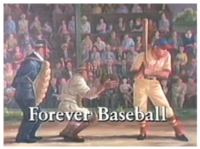
Forever Baseball — PBS The American Experience (1989)
America’s connection to baseball runs deep. There’s hardly a community that doesn’t have a team, a stake in the game: from the majors, to the minors, to little league, to a father and son playing catch. There are reasons it’s called “the national pastime.” In this film, the history of the game and its place in American life account for that. So do the writers John Updike, Daniel Okrent and John Williams, the poet Quincy Troupe, the artist Ralph Fasanella, the historian Doris Kearns Goodwin, and the paleontologist Stephen Jay Gould. See Review Watch Now
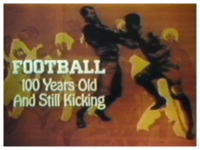
Football: 100 Years Old and Still Kicking — CBS News (1969)
There are many ways to put a mirror to American society. In the late 1960s, in the autumn of its 100th year, the passions and rules — the very language — of football seemed to be one of them. It was a good time to dissect football not only as a game but as an extension of our lives. Historically and to this day, what does America’s version of football tell us about ourselves? See Review Watch Now
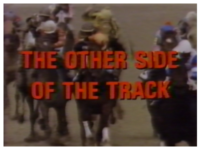
The Other Side of the Track — PBS Frontline (1984)
For centuries, fate and fortunes have been linked to the horse: in war, in peace, at the betting windows. There are few places that bring together so many Americans of every persuasion as the race track. What we see is the public face of a multi-billion-dollar industry, the pomp and ceremony of horse racing. What you don’t see is the other side of the track, the private world of horse racing and horseplayers that captures the imagination, and suspicions, of millions always hungry for a winner.
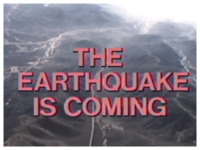
The Earthquake is Coming — PBS Frontline (1987)
A major earthquake along one of California’s many fault lines can’t be prevented or even predicted, but by all accounts is considered inevitable. It could happen in thirty years or tomorrow; if not in our lifetimes, then in our childrens’. How and in what ways our lives will be affected can only be a guess but it will have national repercussions and untold consequences. We traveled the roads and valleys of the state to assess the lay of the land, and those who live on it.
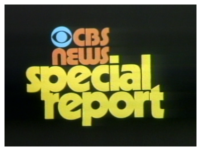
Back on the Road with Charles Kuralt — CBS News (1969)
From Kutztown, Pennsylvania to Georgetown, Mississippi and Pilottown, Louisiana, from Gordon Junction, Illinois to Jamestown, Colorado and Virginia City, Nevada, from places you may never get to and about people you may never meet, highlights from Kuralt’s reports for the CBS Evening News. In his words: “You can’t understand America only by understanding space shots, and suburbs, and supermarkets. We are a past as well as a future.”
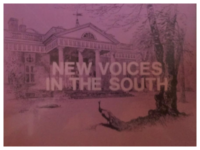 New Voices in the South — CBS News (1971)
New Voices in the South — CBS News (1971)
In off-year elections, four new governors took office in the deep south on platforms that rejected demagoguery and racial policies of the past. In their appeals for racial justice, reconciliation, and economic progress, they were candid about the problems they faced and open-minded about solving them: John West, in South Carolina, Reuben Askew, Florida, Dale Bumpers, Arkansas, and Jimmy Carter, Georgia, who would become president.
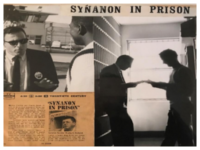
The Twentieth Century: Synanon in Prison — CBS News (1966)
Synanon was a self-help organization of former drug addicts who believed they could help criminals as they had helped themselves. The Nevada State prison allowed them to meet with convicts willing to participate in regular meetings deep within the prison’s walls. We were able to film members of Synanon challenging inmates with their unusual type of confrontational therapy. See Review
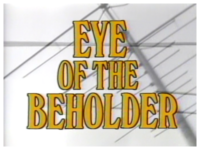 Eye of the Beholder — Inside Story Special/PBS (1981)
Eye of the Beholder — Inside Story Special/PBS (1981)
A holy war of the 1980’s, the evangelical-driven Coalition for Better Television’s crusade to influence, if not force, television stations and networks to stop broadcasting what it deemed offensive to them. See Review
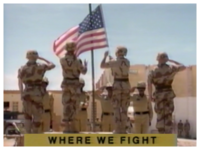 Where We Fight — The Discovery Channel (1993)
Where We Fight — The Discovery Channel (1993)
This edition of The Cronkite Report takes a long and hard look at where, and when, the U.S. has the responsibility and role to use military intervention as an arm of foreign policy. It provides both a historical context and the contemporary challenges of a world beset by political upheaval and civil wars. See Review
